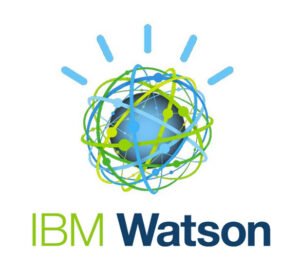
- Introduction to Specialized AI Tools
- DeepL: Revolutionizing Translation with AI
- IBM Watson: A Comprehensive Suite of AI Tools
- Clarifai: Advancing Computer Vision and NLP
- BigML: Simplifying Predictive Modeling
- Comparative Analysis of the AI Tools
- Real-World Applications and Case Studies
- Conclusion and Recommendations
Introduction to Specialized AI Tools
In today’s rapidly evolving technological landscape, specialized AI tools are emerging as pivotal assets across various industries. These tools, designed to perform specific tasks with high efficiency, are revolutionizing how businesses operate, make decisions, and interact with data. This blog post will delve into four prominent specialized AI tools: DeepL, IBM Watson, Clarifai, and BigML, each of which offers unique functionalities tailored to distinct applications.
DeepL, renowned for its advanced translation capabilities, leverages sophisticated neural networks to provide highly accurate translations, making it an indispensable tool for global communication and content localization. IBM Watson, on the other hand, stands out for its versatility and robust cognitive computing abilities. It is widely used for creating AI-driven applications, providing businesses with insights derived from vast amounts of unstructured data.
Clarifai specializes in visual recognition and AI-powered image and video analysis. Its ability to accurately identify and categorize visual content makes it a valuable resource for industries ranging from e-commerce to security. Lastly, BigML is known for its user-friendly machine learning platform, which simplifies the creation and deployment of predictive models, making machine learning accessible to a broader audience.
As we delve deeper into each of these specialized AI tools, it is essential to understand their distinct purposes and the specific benefits they offer. By leveraging these tools, businesses can enhance operational efficiency, improve decision-making processes, and unlock new opportunities for innovation. This exploration aims to provide a comprehensive understanding of how these AI tools can be integrated into various business processes, ultimately driving growth and competitive advantage in an increasingly AI-driven world.
DeepL: Revolutionizing Translation with AI

DeepL stands as a beacon of innovation in the realm of AI-powered translation, setting new benchmarks for accuracy and contextual understanding. Unlike traditional translation tools, DeepL leverages advanced neural networks to deliver translations that are not only precise but also nuanced, capturing the subtleties and context of the source language. This capability ensures that the translated text retains its original meaning and tone, making it a preferred choice for professionals and businesses alike.
One of DeepL’s standout features is its ability to understand and translate idiomatic expressions and complex sentence structures, which are often challenging for other translation tools. This contextual understanding is particularly beneficial in industries where precision and clarity are paramount, such as legal, medical, and technical fields. Furthermore, DeepL offers a range of languages, enabling seamless communication across diverse linguistic landscapes.
The platform’s user interface, available on deepl.com, is designed with simplicity and efficiency in mind. Users can easily input text or upload documents for translation, and the results are generated almost instantaneously. The clean, intuitive design ensures a smooth user experience, making it accessible to both novices and experts. Additionally, DeepL offers integration with various applications and services, further enhancing its utility. Notable partnerships include integrations with Microsoft Office and CAT tools, which streamline the workflow for translators and content creators.
Industries benefiting from DeepL’s services range from global enterprises requiring multilingual communication to academic researchers needing precise translations of scholarly articles. The tool’s ability to handle specialized terminology and jargon makes it invaluable in these sectors. DeepL’s commitment to continuous improvement and adaptation to user needs positions it as a leader in the translation industry, revolutionizing the way we bridge language barriers through artificial intelligence.
IBM Watson: A Comprehensive Suite of AI Tools

IBM Watson stands out as a premier suite of AI tools, offering solutions across a multitude of domains including natural language processing (NLP), image recognition, and machine learning. Its versatility and robustness make it a valuable asset in diverse industries such as healthcare, finance, and customer service. IBM Watson’s ability to understand, reason, learn, and interact with humans in a natural way has significantly advanced the field of artificial intelligence.
In the healthcare industry, IBM Watson is leveraged to assist in diagnosing diseases and personalizing treatment plans. Using advanced NLP, it can analyze vast amounts of medical literature and patient records to provide evidence-based recommendations. In finance, Watson’s machine learning algorithms help in detecting fraudulent transactions, assessing credit risks, and automating routine tasks, thereby enhancing operational efficiency. The customer service sector also benefits from Watson’s capabilities, as it powers chatbots that can understand and respond to customer queries in real-time, providing a seamless user experience.
One of the key features of IBM Watson is its ability to integrate with other technologies and data sources, making it adaptable to various business needs. Its tools for NLP, such as Watson Natural Language Understanding and Watson Assistant, enable businesses to extract insights from text and engage with users through conversational interfaces. Additionally, Watson Visual Recognition allows for the analysis and categorization of images, proving useful in sectors like retail and security.
IBM Watson’s official website, ibm.com/watson, serves as a comprehensive resource for developers and enterprises. It offers detailed documentation, tutorials, and case studies that demonstrate successful implementations of Watson’s tools. Furthermore, the IBM Watson Studio provides a collaborative environment for data scientists, developers, and business analysts to build and deploy AI models efficiently.
Overall, IBM Watson’s broad array of AI tools and its successful application across various industries underscore its position as a leader in the AI landscape.
Clarifai: Advancing Computer Vision and NLP

Clarifai stands out as an advanced AI platform specializing in computer vision, natural language processing (NLP), and automatic speech recognition. Leveraging state-of-the-art machine learning models, Clarifai delivers robust solutions for image and video analysis, text understanding, and speech-to-text conversion, making it a versatile tool for a wide range of applications.
In the realm of computer vision, Clarifai excels with its ability to analyze and interpret visual data. The platform can identify objects, scenes, and actions within images and videos, which is particularly valuable for sectors such as security, where real-time surveillance and threat detection are critical. Retail businesses also benefit from Clarifai’s image recognition capabilities, employing them for inventory management, customer behavior analysis, and personalized shopping experiences.
Clarifai’s prowess in natural language processing enables it to understand and generate human language effectively. The platform can process vast amounts of textual data, extracting meaningful insights and automating responses, which is essential for media companies dealing with large volumes of content. Additionally, Clarifai’s NLP tools support sentiment analysis, topic detection, and language translation, enhancing communication and information dissemination across various industries.
Automatic speech recognition is another area where Clarifai shines. The platform can convert spoken language into text with high accuracy, facilitating applications such as transcription services, voice-activated assistants, and real-time translation. This capability is particularly useful in media and entertainment, where subtitles and closed captioning are crucial for accessibility and user engagement.
Clarifai’s website, clarifai.com, offers a comprehensive overview of its services and tools. Developers can easily integrate Clarifai’s APIs into their applications, thanks to the platform’s user-friendly interface and extensive documentation. The website also provides tutorials, case studies, and a community forum, ensuring that users can maximize the potential of Clarifai’s AI solutions.
BigML: Simplifying Predictive Modeling

BigML is a prominent machine learning platform dedicated to simplifying the creation of predictive models and data analysis. Designed with a user-friendly interface, BigML seeks to bridge the gap between machine learning novices and seasoned data scientists. The platform offers an array of tools that cater to different levels of expertise, making it accessible for anyone interested in harnessing the power of machine learning.
One of the standout features of BigML is its intuitive interface. Users can easily navigate through the platform to create, evaluate, and deploy predictive models. The drag-and-drop functionality allows for seamless interaction with data, facilitating a smooth workflow from data import to model deployment. This ease of use significantly lowers the barrier to entry for individuals and businesses looking to integrate machine learning into their operations.
BigML supports a variety of machine learning tasks, including forecasting, anomaly detection, and clustering. For instance, businesses can leverage BigML’s forecasting capabilities to predict sales trends or inventory needs, enabling better planning and resource allocation. Anomaly detection helps in identifying unusual patterns in data, which is crucial for fraud detection and quality control. Clustering, on the other hand, allows users to group similar data points together, aiding in customer segmentation and market analysis.
Beyond its practical applications, BigML is also committed to education and continuous learning. The platform’s website, bigml.com, offers a wealth of resources to help users deepen their understanding of machine learning. These educational materials include tutorials, webinars, and comprehensive documentation, ensuring that users have the support they need to get the most out of the platform.
In conclusion, BigML stands out as a versatile and user-friendly machine learning platform. Its combination of accessible tools and robust educational resources makes it an excellent choice for both beginners and experts looking to delve into predictive modeling and data analysis.
Comparative Analysis of the AI Tools
When evaluating specialized AI tools such as DeepL, IBM Watson, Clarifai, and BigML, it is crucial to consider several factors, including ease of use, accuracy, scalability, and cost. Each of these tools offers unique strengths and weaknesses, making them suitable for different scenarios and complementary in a multi-tool AI strategy.

DeepL excels in natural language processing, particularly in language translation. Its ease of use is a major advantage, with a user-friendly interface that requires minimal technical expertise. The accuracy of DeepL’s translations is often praised, outperforming many competitors in nuanced language contexts. However, DeepL’s scalability can be a limiting factor, as it is primarily designed for translation rather than broader AI applications. The cost is competitive, especially for users requiring high-quality translations without the need for extensive customization.

IBM Watson offers a comprehensive suite of AI tools, including natural language understanding, visual recognition, and machine learning capabilities. Its strength lies in its versatility and scalability, making it suitable for enterprise-level applications. IBM Watson’s accuracy in processing large datasets and generating insights is notable. However, the complexity of its tools may pose a steep learning curve for beginners, and its cost can be prohibitive for small businesses or startups. IBM Watson is best suited for organizations needing a robust, scalable AI solution capable of handling diverse tasks.

Clarifai specializes in image and video recognition, providing high accuracy in visual data analysis. Its ease of use is facilitated by intuitive APIs and pre-trained models, allowing users to quickly integrate its capabilities into their applications. Clarifai’s scalability is robust, catering to both small-scale projects and large-scale deployments. However, the cost can vary significantly based on usage, and it may not be the best fit for applications outside the realm of visual recognition. Clarifai is ideal for businesses focusing on image and video analysis, such as those in the media or retail sectors.

BigML focuses on machine learning, offering tools for predictive modeling, classification, and clustering. Its user-friendly interface and comprehensive documentation make it accessible to users with varying levels of expertise. BigML’s accuracy in generating predictive models is commendable, and its scalability supports both small and large datasets. The cost is relatively affordable, particularly for educational and research purposes. However, BigML’s specialization in machine learning might limit its applicability for tasks requiring natural language processing or visual recognition. It is best suited for organizations prioritizing predictive analytics and data-driven decision-making.
In a multi-tool AI strategy, these tools can complement each other effectively. For instance, a business could use DeepL for language translation, IBM Watson for comprehensive data analysis, Clarifai for visual recognition, and BigML for predictive modeling. By leveraging the strengths of each tool, organizations can create a versatile and powerful AI ecosystem tailored to their specific needs.
Real-World Applications and Case Studies
Specialized AI tools have been making waves across various industries, providing tailored solutions that drive significant improvements in efficiency and innovation. By examining real-world applications and case studies, we can better understand their practical impact and potential.
DeepL: Renowned for its superior translation capabilities, DeepL has been implemented by global enterprises to bridge language barriers in international communications. For instance, a major e-commerce platform integrated DeepL to translate product descriptions in real-time, enhancing customer experience across multiple regions. This implementation led to a 20% increase in international sales and a notable reduction in translation errors. The key lesson here is the importance of precision and speed in multilingual environments.
IBM Watson: IBM Watson’s cognitive computing power has revolutionized various sectors, particularly healthcare. A leading hospital utilized Watson to analyze vast amounts of medical data and provide personalized treatment plans for cancer patients. This approach resulted in a 15% improvement in patient outcomes and a reduction in the time required for diagnosis. The case study underscores the significance of AI in augmenting human expertise and expediting critical decision-making processes.
Clarifai: Specializing in image and video recognition, Clarifai has found extensive application in the security industry. A prominent security firm employed Clarifai’s technology to enhance surveillance systems, enabling real-time object detection and facial recognition. This deployment led to a 30% decrease in security breaches and improved incident response times. The lesson learned is the power of AI in enhancing situational awareness and operational security.
BigML: BigML’s machine learning platform has empowered businesses to make data-driven decisions. An insurance company leveraged BigML to predict customer churn and tailor retention strategies. By analyzing customer behavior patterns, the company achieved a 25% reduction in churn rates, translating to significant cost savings. This case study highlights the value of predictive analytics in customer relationship management and strategic planning.




These case studies illustrate the transformative potential of specialized AI tools in addressing real business challenges. By integrating AI into their operations, organizations can unlock new efficiencies, enhance decision-making, and ultimately drive growth.
Artificial Intelligence (AI) continues to evolve at an unprecedented pace, leading to enhanced capabilities of specialized AI tools like DeepL, IBM Watson, Clarifai, and BigML. As industries increasingly rely on AI for efficiency and innovation, upcoming trends and advancements are critical to watch. These innovations promise to further integrate AI into various sectors, driving both technological and business transformations.
One significant trend is the advancement in natural language processing (NLP). Tools such as DeepL, which focuses on translation, are expected to leverage more sophisticated NLP algorithms to provide more accurate and context-aware translations. The integration of AI with larger datasets and improved machine learning models will enhance semantic understanding, making tools more intuitive and effective.
Another emerging technology is the integration of AI with Internet of Things (IoT). IBM Watson, known for its cognitive computing capabilities, is likely to play a crucial role in this arena. The fusion of AI and IoT will enable real-time data analysis and decision-making, fostering smarter environments in sectors like healthcare, agriculture, and urban planning. This synergy can provide predictive insights and automate complex processes, aligning with industry demands for increased efficiency.
In the realm of computer vision, tools like Clarifai are set to benefit from advancements in deep learning and edge computing. Enhanced image and video recognition capabilities will allow more precise and rapid analysis, essential for applications in security, retail, and autonomous vehicles. The evolution of these technologies will further empower businesses to leverage visual data for competitive advantage.
BigML, specializing in machine learning, is anticipated to evolve with advancements in automated machine learning (AutoML). This will simplify the model creation process, democratizing access to machine learning for non-experts. Enhanced user interfaces and more robust model interpretability will address the growing demand for transparency and ease of use in AI applications.
Overall, the future of specialized AI tools appears promising, driven by continuous technological progress and increasing industry adoption. As these tools evolve, they will become even more integral to solving complex problems and driving innovation across various domains.
Conclusion and Recommendations
In this exploration of specialized AI tools, we’ve delved into the unique capabilities of DeepL, IBM Watson, Clarifai, and BigML. Each tool offers distinct advantages that cater to various business needs and developmental requirements. DeepL excels in providing high-quality language translation services, making it indispensable for global communication. IBM Watson stands out with its comprehensive suite of AI services, including natural language processing and machine learning, which are vital for businesses aiming for robust data analysis and customer engagement. Clarifai specializes in visual recognition and AI-driven image and video analysis, proving essential for sectors that rely heavily on visual data. Finally, BigML offers user-friendly machine learning solutions that empower businesses to build predictive models with ease.
When selecting the right AI tool, businesses and developers should consider their specific needs and the problem they aim to solve. Integration of these tools into existing workflows should be approached strategically. Evaluate the tool’s compatibility with your current tech stack, the ease of implementation, and the scalability it offers. It’s also crucial to provide adequate training to your team to maximize the tool’s potential.
Additionally, staying updated with the latest advancements in AI technology is paramount. The AI landscape is continually evolving, with new tools and updates being released regularly. Keeping abreast of these changes can offer businesses a significant competitive edge, allowing them to leverage the most up-to-date solutions and maintain operational efficiency. Regularly exploring and experimenting with new AI tools can uncover innovative ways to enhance productivity and drive growth.
In conclusion, the strategic adoption and integration of specialized AI tools like DeepL, IBM Watson, Clarifai, and BigML can propel businesses forward in the digital age. By carefully selecting the right tools and staying informed about the latest technological advancements, companies can harness the full potential of AI to achieve their goals and maintain a competitive edge in the market.



